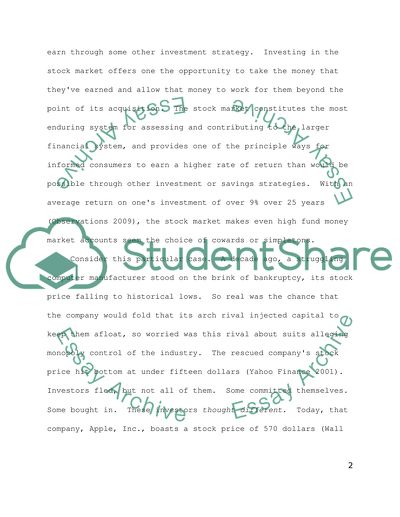Cite this document
(“Stock Market for the Win Research Paper Example | Topics and Well Written Essays - 1500 words”, n.d.)
Retrieved from https://studentshare.org/english/1448839-why-individuals-should-invest-in-the-stock-market
Retrieved from https://studentshare.org/english/1448839-why-individuals-should-invest-in-the-stock-market
(Stock Market for the Win Research Paper Example | Topics and Well Written Essays - 1500 Words)
https://studentshare.org/english/1448839-why-individuals-should-invest-in-the-stock-market.
https://studentshare.org/english/1448839-why-individuals-should-invest-in-the-stock-market.
“Stock Market for the Win Research Paper Example | Topics and Well Written Essays - 1500 Words”, n.d. https://studentshare.org/english/1448839-why-individuals-should-invest-in-the-stock-market.


